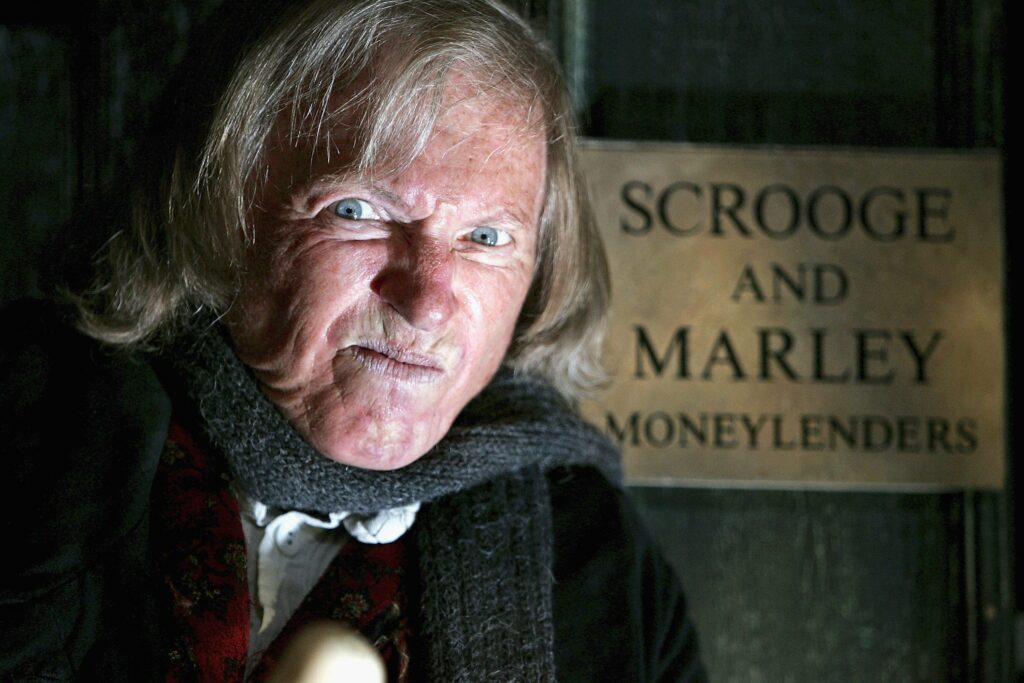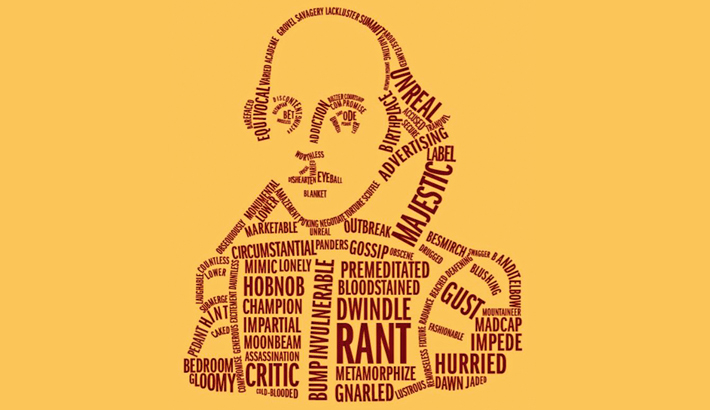By Ana López Usó,
The most common (and correct) thought for the origin of words in the languages we speak is that they either originated in languages that have preceded ours and transformed through the years or they come from other languages in the form of “borrowings”. However, there are more sources in the creation of words that we would think of. Language is the most fundamental tool for literature; nonetheless, languages owe many terms and expressions to literary authors and works. From adjectives, nouns and verbs to metaphors and idiomatic expressions, works of literature have served as place of origin for language in a much bigger scale than we would normally think of.
One of the most obvious examples of words originating in literary works are the expressions that come from names of well-known writers. Adjectives like “Chaucerian”, adapted from the name of the English writer Geoffrey Chaucer; “Dickensian” after Charles Dickens; or “Orwellian” after George Orwell, express situations that would be characteristic of these authors’ works.
However, authors’ names are not the only literary source of new terms in language, but their works play a crucial role too. For example, the word “scrooge”, name of the main character of Dicken’s novel Christmas Carol, means “someone who spends as little money as possible and is not generous” in the current English lexicon, mirroring the traits of the protagonist. “My uncle is a mean old scrooge!”. Regarding George Orwell’s works, the English language has adapted the concept of “Big Brother” (name of the totalitarian dictator that appears in Orwell’s novel 1984) to make reference to government surveillance. The term “newspeak” indicates the fictional language that Orwell invents in his novel as a substitute of real language in an attempt to diminish the range of thought of the citizens. Nowadays, if something is a “newspeak” it is a synonym for nonsense. Also, from Orwell’s works, the term “doublethink” has been adapted to the English language as an expression for contradiction. “There is an extraordinary capacity for doublethink. They delight in pointing the finger at everyone else and do not acknowledge they have a problem.”

There are endless examples of literary characters who have left a mark on our modern-day language. The term “Don Juan” stands for a synonym of the word “womanizer”, and it originated from a Spanish nobleman who became a hero in poems, plays and operas, created first by the Spanish writer Tirso de Molina and recreated later in many other works of universal literature. This term is not only used in English, but also Spanish and many other languages. On another note, the expression “quixotic” can also be found in the English language. Originated after the novel “Don Quixote” by Miguel de Cervantes, the meaning of the expression is “having or showing ideas that are different and unusual but not practical or likely to succeed”. “This is a vast, exciting, quixotic project”. Funnily enough, this expression is not commonly used in the Spanish language.
Another example of metaphors in the English language acquired from a work of literature is the phrase “Catch-22”, coming from the satirical pacifist novel of the same name by Joseph Heller. The book deals with the main character, Yossarian, who finds himself trying to avoid flying missions in the military. In the book, pilots who are declared mentally unfit do not have to fly again, but pilots who request to be declared mentally unfit are regarded as sane (as they want to avoid dying), so they must fly. This paradoxical situation has become an expression in English meaning “a situation in which there are only two possibilities, and you cannot do either because each depends on having done the other first.” “It is a catch-22 situation – you can’t get people without funding, but you can’t get funding without people”.
Nevertheless, words do not only find their origin in writers’ works themselves, but some writers purposely created new words that have acquired a very important role in language, so much that such words are part of any everyday conversation nowadays.
In his work Through the looking glass, Lewis Carrol created several words presented in the poem Jabberwocky. The term itself has become a “meaningless speech or writing”. One of the most popular words created in the poem is “chortle” probably a combination of “chuckle” and “snort” and defined as “to chuckle gleefully”.
Last but certainly not least, we find William Shakespeare. Not only the adjective “Shakespearian” is heavily in use, but there are multiple references for characters of his works. For example, “Romeo” is used to refer to “a man who thinks he is attractive and has relationships with many women” or a “Juliet balcony” is described as a “narrow balcony with vertical metal bars, fitted to the outside of a building in front of an upstairs full-length window that can be opened like doors”. On top of that, William Shakespeare was also the inventor of many words and expressions that are still very much in use in the English language.
The English of Elizabethan times was not as rich as it is now, so Shakespeare felt the need to use a series of techniques to create new words and give name to things that the English language run short of. For example, he used the technique of conjoining two words to make a new concept, such as adding adjectives to the noun “blood”, creating new terms such as hot-blooded, cold-blooded, half-blooded, etc. He also changed verbs into adjectives, being the first writer to coin the adjective “gloomy”, in his play Henry VI. Another technique used by the playwright was to change nouns into verbs. An example is “gossip”, known as a noun until its use as a transitive verb appeared in All’s Well That Ends Well. Shakespeare had some knowledge of Latin, language that served as inspiration to create several words. For example, he would take Latin prefixes (such as “con” that means “with”) or suffixes (as -ation), and would join them to English terms, creating words such as “congreeted” or “assassination”.

However, Shakespeare has not only scribed new words, but he is also the father of many idiomatic expressions in use nowadays. For example, to be a “laughing stock”, meaning a person or thing people laugh at, appeared for the first time in Shakespeare’s play The Merry Wives of Windsor. To “fight fire with fire” (to use the same tactics as an opponent to beat them) was coined for the first time in the play King John. Moreover, in Shakespeare’s play Julius Caesar, Roman philosopher Seneca delivers a speech deliberately in Greek, to what senator Casca responds: “For mine own part, it was Greek to me.” This way, Shakespeare created the well-known sentence of “Greek to me” that nowadays has the meaning of unintelligible.
The examples of words and expressions that have originated in works of literature are endless. The English language specifically owes many other words to countless authors and works. So much so that more than one book would be needed to talk about all the terms used in everyday speech that have had their origin in literature. This process does not just happen in English, but every language has gone through a similar procedure to a greater or lesser extent. In the end, this is just an example of the power of literature and the written word which are omnipresent in our language without us realizing it, regardless of our fondness of it. We all speak literature, even without having read literature at all.
References
- COLUMBIA JOURNALISM REVIEW: ‘Gossip,’ and other words repurposed by Shakespeare. Available here.
- KEEPING UP WITH THE PENGUINS: 7 Books that Gave Us Words and Catch Phrases We Use Every Day. Available here.




